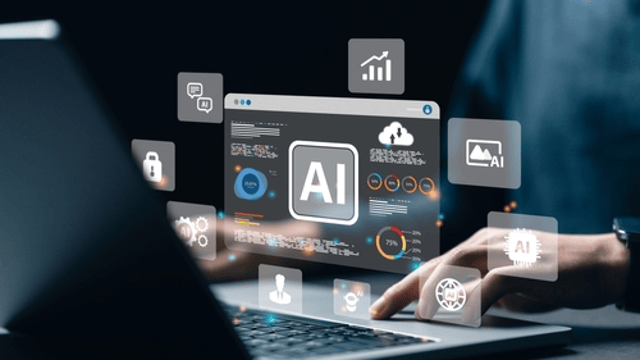
The shift to smaller, more efficient AI models
As is the case with most technological advancements, especially in their early stages, AI has grown in efficiency and usability, getting larger before it gets smaller. AI models have grown in size and complexity, with larger models outperforming the smaller ones.
In 2024, however, there was a major shift where smaller models significantly outperformed larger systems. Suddenly, compact AI models, which are one-hundredth the size of earlier models, began demonstrating similar capabilities in tasks such as natural language processing and decision-making.
The rise of these more efficient models is a game-changer for hospitality companies. Smaller models require less computing power, making them more cost-effective to deploy. They can also be run on local devices, reducing the need for expensive cloud infrastructure.
For example, a hotel could run an AI model to manage its guest services locally, rather than relying on external data centers, allowing for faster response times, reduced latency, and lower operational costs. All of these are essential factors for industries like hospitality, where efficiency and customer satisfaction are paramount.
Industry-led AI development: Meeting real-world needs
Historically, academia led AI research, but in recent years, the focus has shifted. Today, nearly 90% of AI models are developed by companies driven by the need for practical, industry-specific solutions. For hospitality businesses, this shift means that AI tools are becoming more tailored to the sector’s unique challenges, such as dynamic pricing, customer service automation, and operational efficiency.
As AI development moves from the lab to the corporate world, businesses in hospitality now have access to more immediately applicable AI solutions designed to address real-world operational needs, from optimizing revenue management systems to personalizing guest experiences in real time. Industry-driven AI models offer faster deployment times and more relevant features, allowing companies to quickly and efficiently improve their services. This capability is crucial in the hospitality industry, where customer expectations are continually evolving, and businesses must adapt rapidly to remain competitive.
The rise of open-weight AI models
Closed AI models, which are proprietary and often locked behind paywalls, have long dominated the market. However, open-weight AI models are gaining traction, offering a viable alternative because they are publicly accessible and customizable, allowing businesses to modify them to suit their specific needs. By early 2025, the performance gap between open-weight and closed AI systems had narrowed significantly, making open-weight models a practical choice for many businesses, including those in the hospitality industry.
The key advantage of open-weight models lies in their flexibility. Hospitality brands can host these models on their own servers, maintaining control over their data and ensuring compliance with relevant data protection and privacy regulations.
Additionally, these models can be retrained regularly, allowing businesses to adjust to new trends or customer preferences without relying on expensive third-party vendors. For hospitality companies, this flexibility reduces costs, enhances security, and provides greater control over AI applications, from customer service chatbots to predictive analytics for guest behavior.





